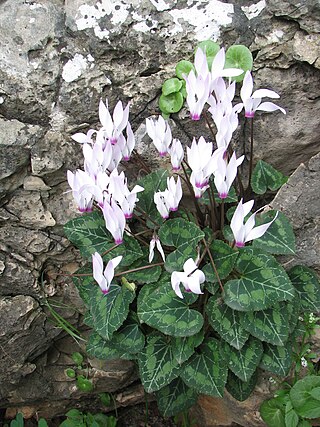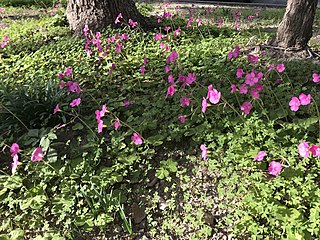
The Bedouin, Beduin, or Bedu are pastorally nomadic Arab tribes who have historically inhabited the desert regions in the Arabian Peninsula, North Africa, the Levant, and Mesopotamia (Iraq). The Bedouin originated in the Syrian Desert and Arabian Desert but spread across the rest of the Arab world in West Asia and North Africa after the spread of Islam. The English word bedouin comes from the Arabic badawī, which means "desert-dweller", and is traditionally contrasted with ḥāḍir, the term for sedentary people. Bedouin territory stretches from the vast deserts of North Africa to the rocky ones of the Middle East. They are sometimes traditionally divided into tribes, or clans, and historically share a common culture of herding camels, sheep and goats. The vast majority of Bedouins adhere to Islam, although there are some fewer numbers of Christian Bedouins present in the Fertile Crescent.
Regarding the music of Syria, there are certain musical traditions and practices that have been present in Syria longer than others. There have been musical influences introduced into Syria through multiple eras of conquest and influences from surrounding cultures in modern-day Syria. Lying in the Middle East, and connected to southern Europe by the Mediterranean, Syria became host to many distinct cultural musics through trade and route. The music present in Syria is related greatly to poetry, influenced greatly by the Bedouin nomadic tribes, the maqam system in Arabic classical music, as well as influenced greatly by the geopolitical movement and conflict in the Middle East. Syrian music generally has a singer who is accompanied by three or four instruments. The texture is usually thin but can become denser depending on the use of each instrument. Music is tightly linked to poetry in Syria.
Maghrebi Arabic, often known as ad-Dārija to differentiate it from Literary Arabic, is a vernacular Arabic dialect continuum spoken in the Maghreb. It includes the Moroccan, Algerian, Tunisian, Libyan, Hassaniya and Saharan Arabic dialects. Maghrebi Arabic has a predominantly Semitic and Arabic vocabulary, although it contains a significant number of Berber loanwords, which represent 2–3% of the vocabulary of Libyan Arabic, 8–9% of Algerian and Tunisian Arabic, and 10–15% of Moroccan Arabic. Maghrebi Arabic was formerly spoken in Al-Andalus and Sicily until the 17th and 13th centuries, respectively, in the extinct forms of Andalusi Arabic and Siculo-Arabic. The Maltese language is believed to have its source in a language spoken in Muslim Sicily that ultimately originates from Tunisia, as it contains some typical Maghrebi Arabic areal characteristics.

Arabization or Arabicization is a sociological process of cultural change in which a non-Arab society becomes Arab, meaning it either directly adopts or becomes strongly influenced by the Arabic language, culture, literature, art, music, and ethnic identity as well as other socio-cultural factors. It is a specific form of cultural assimilation that often includes a language shift. The term applies not only to cultures, but also to individuals, as they acclimate to Arab culture and become "Arabized". Arabization took place after the Muslim conquest of the Middle East and North Africa, as well as during the more recent Arab nationalist policies toward non-Arab minorities in modern Arab states, such as Algeria, Iraq, Syria, Egypt, Bahrain, and Sudan.

Peganum harmala, commonly called wild rue, Syrian rue, African rue, esfand or espand, or harmel, is a perennial, herbaceous plant, with a woody underground rootstock, of the family Nitrariaceae, usually growing in saline soils in temperate desert and Mediterranean regions. Its common English-language name came about because of a resemblance to rue. Because eating it would sicken or kill livestock, it is considered a noxious weed in a number of countries. It has become an invasive species in some regions of the western United States. The plant is popular in Middle Eastern and north African folk medicine. The alkaloids contained in the plant, including the seeds, are monoamine oxidase inhibitors.

The Syrian Desert, also known as the North Arabian Desert, the Jordanian steppe, or the Badiya, is a region of desert, semi-desert, and steppe, covering approx. 500,000 square kilometers of West Asia, including parts of northern Saudi Arabia, eastern Jordan, southern Syria, and western Iraq. It accounts for approx. 85% of the land area of Jordan and 55% of Syria. To the south, it borders and merges into the Arabian Desert. The land is open, rocky or gravelly desert pavement, cut with occasional wadis, or river valleys, generally dry riverbeds.

The Middle East and North Africa (MENA), also referred to as West Asia and North Africa (WANA) or South West Asia and North Africa (SWANA), is a geographic region which comprises the Middle East and North Africa together. However, it is widely considered to be a more defined and apolitical alternative to the concept of the Greater Middle East, which comprises the bulk of the Muslim world. The region has no standardized definition and groupings may vary, but the term typically includes countries like Algeria, Bahrain, Egypt, Jordan, Kuwait, Lebanon, Libya, Morocco, Oman, Qatar, Saudi Arabia, Syria, Tunisia, the UAE, and Yemen.

Tetraclinis is a genus of evergreen coniferous trees in the cypress family Cupressaceae, containing only one species, Tetraclinis articulata, also known as Thuja articulata, sandarac, sandarac tree or Barbary thuja, endemic to the western Mediterranean region.

Samakh was a Palestinian Arab village at the south end of Lake Tiberias in Ottoman Galilee and later Mandatory Palestine. It was the site of battle in 1918 during World War I.

The BM-14, is a Soviet-made 140mm multiple launch rocket system (MLRS), normally mounted on a truck.
Bedouin Arabic refers to a typological group of Arabic dialects historically linked to Bedouin tribes, that has spread among both nomadic and sedentary groups across the Arab World. The group of dialects originate from Arabian tribes in Najd and the Hejaz that have spread since the 10th century until modern day. Bedouin dialects vary by region and tribe, but they typically share a set of features which distinguish them from sedentary-type dialects in each region.

Jubb Yusuf, also called 'Arab al-Suyyad, was a Palestinian village depopulated in the 1948 Arab–Israeli War.

Cyclamen persicum, the Persian cyclamen, is a species of flowering herbaceous perennial plant growing from a tuber, native to rocky hillsides, shrubland, and woodland up to 1,200 m (3,900 ft) above sea level, from south-central Turkey to the Levant. It also grows in Algeria and Tunisia and on the Greek islands of Rhodes, Karpathos, and Crete, where it may have been introduced by monks. Cultivars of this species are the commonly seen florist's cyclamen.

Anabasis is a genus of plants in the subfamily Salsoloideae of the family Amaranthaceae. It is distributed in southern Europe, North Africa, and Asia.

Oxalis articulata, known as pink-sorrel, pink wood sorrel, windowbox wood-sorrel, Chari amilo (Nepal), sourgrass, Netho (khatta) saag (India) is a perennial plant species in the genus Oxalis native to temperate South America. It has been introduced in Europe in gardens and is now naturalized in these areas.

The Military of the Islamic State is the fighting force of the Islamic State (IS). The total force size at its peak was estimated from tens of thousands to over two hundred thousand. IS's armed forces grew quickly during its territorial expansion in 2014. The IS military, including groups incorporated into it in 2014, openly operates and controls territory in multiple cities in Libya and Nigeria. In October 2016, it conquered the city of Qandala in Puntland, Somalia. It conquered much of eastern Syria and western Iraq in 2014, territory it lost finally only in 2019. It also has had border clashes with and made incursions into Lebanon, Iran, and Jordan. IS-linked groups operate in Algeria, Pakistan, the Philippines, and in West Africa. In January 2015, IS was also confirmed to have a military presence in Afghanistan and in Yemen.
Mashriqi Arabic, or Mashriqi ʿAmmiya, encompasses the varieties of Arabic spoken in the Mashriq, including the countries of Egypt, Lebanon, Palestine, Kuwait, Jordan, Syria, Turkey, Iraq, Sudan, Saudi Arabia, UAE, Oman, Bahrain and Qatar. The variety is sometimes referred to as Eastern Arabic, as opposed to Western Arabic and includes Mesopotamian Arabic and Peninsular Arabic, along with Egyptian Arabic, Sudanese Arabic, and Levantine Arabic. Speakers of Mashriqi call their language ʿAmmiya, which means "common or colloquial" in Modern Standard Arabic.
Scrobipalpa gecko is a moth in the family Gelechiidae. It was described by Walsingham in 1911. It is found in Algeria, Tunisia, southern Greece and the Middle East.
Cannabis in Algeria is mostly illegal, although widely consumed. Under Law No. 04-18 13 Dhou El Kaada 1425, and enforcement decree No. 07-228 15 Rajab 1428, cultivation, commerce, and possession are forbidden, except for medical purposes, subject to prior authorization by the Minister of Health.

Soda rosmarinus is a perennial-green desert species of saltwort in the Amaranthaceae family. It is endemic to the lower Jordan Valley along the Dead Sea, in Israel and Jordan, and in the Syrian desert, Central Iraq and in the coastal regions of Saudi Arabia, the islands of Bahrain, Qatar, and Iran, commonly known in Arabic by the names ʾušnān and šenān and in the Neo-Aramaic languages by reflexes of ʾuḥlā. It is often used by Bedouins for cleaning as a soap substitute. In medieval Arabic literature, it is also known by the names of "green ushnan" and "launderers' potash", having been used since time immemorial to produce nabulsi soap and as an electuary in compounding theriac for use in treating scorpion stings, as well as for extracting potassium for other medicinal uses.















